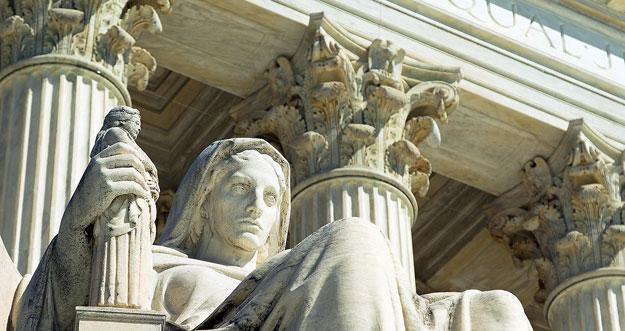The ‘Friedrichs’ case is an attack on unions

NYSNA contracts are fought and won in the realm of collective bargaining where preparation is extensive: staff research on the economics of proposals, on facilities and corporate profiles; lawyers argue and defend our positions; communications gets the word out and circulating; evidentiary support is gathered from POAs and presented with the backdrop of peer-review standards; staffing figures are compiled — these data are essential to bargaining, not to mention essential to our state licensure. In fact, our ability to collectively bargain is at the very heart of our ability to be the type of effective patient advocates that our license and profession demand.
Our dues pay for protection of our jobs and the standards by which we meet our responsibilities of quality patient care.
Challenging legal precedent
Friedrichs v California Teachers Association is a fundamental assault on dues paying in public sector union employment. If Friedrichs prevails, government workers cannot be required to pay fees to the unions that represent them. That includes nurses, teachers and firefighters. It puts the future of “fair share” (also termed “agency fee”) at center stage — that’s the amount of a dues payment attributed to the collective bargaining process.
As it stands today, members of public unions in 23 states, including New York, and the District of Columbia, can “opt out” of that part of their dues that pays for “political activity” — policy, lobbying and candidate endorsements. But dues to support collective bargaining, and all activities necessary to carry it out, are legal obligations (as established in the Abood case of 1977).
A ruling against unions in Friedrichs would overturn Abood, dealing a one-two punch to unions: buying the argument that opting out of dues to fund political activity is protected by the First Amendment and that all activity at a public sector union, including collective bargaining, is “political”. One hundred percent of a dues payment supports political activity, according to the Friedrichs position, and that violates the First Amendment’s free speech protection.
To make their point, Friedrichs lawyers told the Supreme Court that “safety training,” like fire drills, carried out by unions to train teachers was a “political” activity that should not be supported with dues. “Can you think of something that’s more of public concern, that’s more of an ideological point, that’s more important?” asked Attorney Michael Carvin, arguing against public unions. Safety training is ideological?
For NYSNA nurses, training, policy and outreach are in the realm of public health. For nurses, our policies are derived from critical debates about the protection of the public’s health and play a key role at our LBU, inter-regional and other NYSNA meetings, at all-member conventions and other related gatherings, where they serve to educate, inform and coordinate. They also are discussed in an array of venues outside the hospital: in community meetings, at local town and city councils, and in regulatory and legislative forums on the state level. Sometimes we gain insights from other state associations and even from nurses and public health experts in other countries. Our dues fund these critical matters.
Funded by the right wing
The bottom line is this: The wrong ruling in Friedrichs would give First Amendment protection to the “free ride,” so that all the benefits of collective bargaining and the policy and practical work that supports it are available without a dues requirement. “They can enjoy the benefits offered by their unions without having to pay for them,” wrote labor reporter Steven Greenhouse. Too many “free rides” have the potential to hobble, even bankrupt, a union.
Marginalizing unions, extinguishing our voice and eliminating collective bargaining is the goal of a right-wing juggernaut that’s funding Friedrichs. The Center for Individual Rights is bankrolling the case with support from the Koch brothers. The Lynde and Harry Bradley Foundation, John M. Olin Foundation, F.M. Kirby Foundation, Sarah Scaife Foundation and the Carthage Foundation each has contributed more than $1 million. Together these forces fight regulation of the environment and stand for privatization of utilities, including water; they have fought against women’s reproductive rights.
These forces were behind the successful litigation of Citizens United, a case that gave First Amendment rights to corporations to make unlimited expenditures in federal elections.
The wrong ruling in Friedrichs, combined with the law established in Citizens United, amounts to a hijacking of the First Amendment: in the former, by effectively taking away dues from public sector unions to collectively bargain and carry out policy work in support of it; and in the latter, by allowing corporations to make unlimited contributions in federal elections. The New York Times recently called it “a gap in the Supreme Court’s treatment of capital and labor.” Corporations already vastly outspend labor on elections.
Unity is the answer
With unity of action, solidarity in our ranks, and a clear vision for our union and others, we can beat back Friedrichs. Funding collective bargaining, education, organizing to add members and leaders, and articulating policy that protects the public’s health and stands up for quality patient care are the antidote to any decision the Court hands down. Unity is the key.